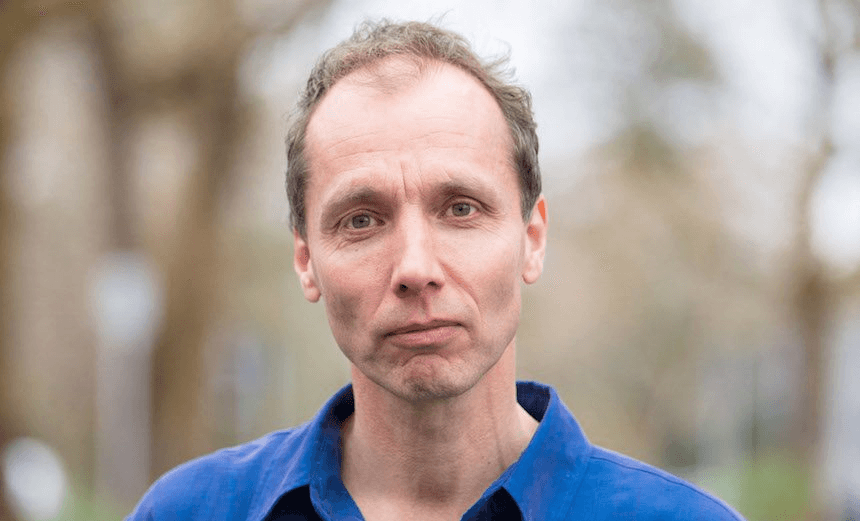Is there any such thing as privacy in the age of social media and smart phones? Exciting new YA thriller novelist LJ Ritchie talks to author Nicky Hager about the realities – and unjustified fears – of state surveillance.
LJ Ritchie: One question that often comes up in discussions on surveillance is, “If I’m not doing anything wrong, why should I care who sees me?” And one of my favourite responses to this is from author Cory Doctorow, who describes watching his young daughter at play, and noticing that she took far more risks in her make-believe when she wasn’t aware he was watching. Although there was nothing wrong with either mode of play, the knowledge that she was being watched encouraged her to conform to what she felt was expected of her. What are your thoughts on the effects of surveillance beyond policing “wrong” behaviour?
Nicky Hager: The claim “If you’ve done nothing wrong, you’ve got nothing to fear” is like a slogan from a police state. I agree with the writers who say that privacy (like freedom of speech) is an essential part of a person being able to develop their personality and beliefs. It’s as crucial and fundamental as that. Privacy is about being able to develop a sense of self, about being able to develop our ideas (making mistakes, changing our minds) and about figuring out our relationships. Sometimes it is about very private things that we want to keep secret: family problems, sexuality, special likes and dislikes, and fears and hopes that gradually make us who we are.
I know as a writer on intelligence that most people by far aren’t being spied on. But if the idea or fear is around that our lives aren’t private, it undermines this vital stuff about who we are. (Also, by the way, the loudmouths who say “If you’ve done nothing wrong, you’ve got nothing to fear” would actually be enraged if their privacy was breached.)
Ritchie: A common metaphor for the modern surveillance state is the panopticon an 18th century idea for a prison in which prisoners had no way to tell when they were under surveillance, so would have to assume they were always watched, and police their own behaviour. Some argue that this model is now obsolete, and we are now in the era of the “panoptiswarm”. They say that surveillance technology is so widely distributed – in the form of camera phones and other consumer products – that it no longer makes sense to imagine a model in which a central authority figure watches everybody, because now everybody participates in the watching, as well as being watched.
Do you think that the widespread availability of recording devices represents a democratisation of surveillance, or does it still end up reinforcing traditional power structures?
Hager: Surveillance isn’t being democratised. Or only a little bit. It mainly accentuates inequalities of power.
Ritchie: What do you think is the role of fiction in shaping public understanding of surveillance? I see surveillance presented most often in crime dramas on TV. These shows rarely address issues of privacy – the targets are presented as criminals, and we are not expected to extend them empathy. The users of surveillance tools rarely misinterpret the information, or make mistakes. This reinforces a popular understanding of surveillance as a moral tool. What aspects of surveillance would you like to see addressed more often in fiction?
Hager: Let me say what stories about surveillance I would like to see less often in fiction. The first of these are ones showing surveillance as vital to protect against super-evil: stopping the fanatical terrorists from blowing up the commuter train etc. etc. These stories essentially re-run intelligence agency propaganda, which claims that the primary purpose of mass surveillance systems is to get the bad guys. But this is not true. Most intelligence collection by far targets political, diplomatic and economic intelligence, or military targets, in competition and conflicts between nations. That’s what they do. Talking about terrorism is largely a cover, so they don’t have to justify what they really do. Thus, the fiction is perpetuating unhelpful propaganda.
But the fictional pictures of surveillance I dislike most are ones that make it seem that everyone is being watched all the time: CCTV cameras, satellites, monitoring of the Internet, huge databases of everyone’s lives…especially in a country like New Zealand, this just isn’t true. If you have a P lab, or an Arabic name and write angry letters to John Key, someone might be taking an interest in you. But luckily nearly everyone isn’t being watched, so I hate it when fiction combined with careless media discussion creates fear for ordinary people that doesn’t need to be there.
This brings us back to the subject of privacy. It is awful if people wonder needlessly whether someone is reading their private email, or decides they’d better not be involved in politics, or generally shrinks down and limits who they are because of an unnecessary fear of surveillance. Because, unfortunately, the fear that we’re being watched does almost as much damage as the reality would.
LJ Ritchie is the author of the newly published YA thriller, Like Nobody’s Watching (Escalator Press, $24.99). Set in Wellington, it’s about a kid who uses his school’s surveillance system “to seek justice for the bullied and the downtrodden”.
The Spinoff Review of Books is brought to you by Unity Books.

